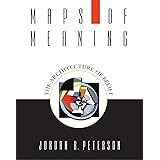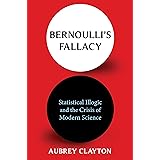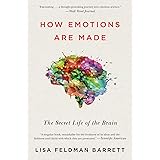
Enjoy fast, free delivery, exclusive deals, and award-winning movies & TV shows with Prime
Try Prime
and start saving today with fast, free delivery
Amazon Prime includes:
Fast, FREE Delivery is available to Prime members. To join, select "Try Amazon Prime and start saving today with Fast, FREE Delivery" below the Add to Cart button.
Amazon Prime members enjoy:- Cardmembers earn 5% Back at Amazon.com with a Prime Credit Card.
- Unlimited Free Two-Day Delivery
- Streaming of thousands of movies and TV shows with limited ads on Prime Video.
- A Kindle book to borrow for free each month - with no due dates
- Listen to over 2 million songs and hundreds of playlists
- Unlimited photo storage with anywhere access
Important: Your credit card will NOT be charged when you start your free trial or if you cancel during the trial period. If you're happy with Amazon Prime, do nothing. At the end of the free trial, your membership will automatically upgrade to a monthly membership.

Download the free Kindle app and start reading Kindle books instantly on your smartphone, tablet, or computer - no Kindle device required.
Read instantly on your browser with Kindle for Web.
Using your mobile phone camera - scan the code below and download the Kindle app.

OK
 Audible sample Sample
Audible sample Sample 


The Master and His Emissary: The Divided Brain and the Making of the Western World Paperback – Illustrated, March 26, 2019

Explore your book, then jump right back to where you left off with Page Flip.
View high quality images that let you zoom in to take a closer look.
Enjoy features only possible in digital – start reading right away, carry your library with you, adjust the font, create shareable notes and highlights, and more.
Discover additional details about the events, people, and places in your book, with Wikipedia integration.
Purchase options and add-ons
“Persuasively argues that our society is suffering from the consequences of an over-dominant left hemisphere losing touch with its natural regulative ‘master’ the right. Brilliant and disturbing.”—Salley Vickers, a Guardian Best Book of the Year
“I know of no better exposition of the current state of functional brain neuroscience.”—W. F. Bynum, Times Literary Supplement
Why is the brain divided? The difference between right and left hemispheres has been puzzled over for centuries. Drawing upon a vast body of brain research, the renowned psychiatrist, author, and thinker Iain McGilchrist reveals that the difference between the two sides is profound—two whole, coherent, but incompatible ways of experiencing the world. The detail-oriented left hemisphere prefers mechanisms to living things and is inclined to self-interest, while the right hemisphere has greater breadth, flexibility, and generosity.
In the second part of his book, McGilchrist takes the reader on a journey through the history of Western culture, illustrating the tension between these two worlds as revealed in the thought and belief of thinkers and artists from the ancient to the modern, from Aeschylus to Magritte. He ultimately argues that, despite its inferior grasp of reality, the left hemisphere is increasingly taking precedence in today’s world—with potentially disastrous consequences.
- Print length616 pages
- LanguageEnglish
- PublisherYale University Press
- Publication dateMarch 26, 2019
- Dimensions8.5 x 5.6 x 1.6 inches
- ISBN-100300245920
- ISBN-13978-0300245929
The Amazon Book Review
Book recommendations, author interviews, editors' picks, and more. Read it now
Frequently bought together

Similar items that may ship from close to you
Editorial Reviews
Review
“Persuasively argues that our society is suffering from the consequences of an over-dominant left hemisphere losing touch with its natural regulative ‘master’ the right. Brilliant and disturbing.”—Salley Vickers, a Guardian “Best Book of the Year”
“A landmark. . . . It tells a story you need to hear, of where we live now.”—Bryan Appleyard, Sunday Times
“McGilchrist describes broad [intellectual] movements and famous figures as if they were battles and soldiers in a 2,500-year war between the brain’s hemispheres. . . . A scintillating intelligence is at work.”—The Economist
“A veritable tour de force, gradually and skilfully revealed. I know of no better exposition of the current state of functional brain neuroscience.”—W. F. Bynum, Times Literary Supplement
“Clear, penetrating, lively, thorough and fascinating. . . . I couldn’t put it down.”—Mary Midgley, The Guardian
“A seminal book.”—Ervin László, Huffington Post
“A fascinating book. . . . [McGilchrist] is a subtle and clever thinker, and unusually qualified to range with such authority over so many different domains of knowledge.”—Harry Eyres, Financial Times
Winner of the Scientific and Medical Network Book Prize 2009
Shortlisted for the Bristol Festival of Ideas Book Prize 2010
Longlisted for the Royal Society Book Prize 2010
“A profound examination.”—Philip Pullman
“Iain McGilchrist’s ideas about human capabilities are among the most provocative I’ve encountered—and I mean provocative in a positive sense.”—Howard Gardner
“A dazzling masterpiece . . . comprehensive and profound.”—Norman Doidge
“A marvellous and highly original synthesis of ideas on how the division of labour between the two brain hemispheres can provide key insights into human nature.”—V. S. Ramachandran
“Unbelievably rich. . . . Of absolutely crucial cultural and intellectual importance.”—Louis Sass
About the Author
Product details
- Publisher : Yale University Press; Second Edition, New Expanded (March 26, 2019)
- Language : English
- Paperback : 616 pages
- ISBN-10 : 0300245920
- ISBN-13 : 978-0300245929
- Item Weight : 1.81 pounds
- Dimensions : 8.5 x 5.6 x 1.6 inches
- Best Sellers Rank: #9,253 in Books (See Top 100 in Books)
- #17 in Popular Neuropsychology
- #33 in History of Civilization & Culture
- #49 in Cognitive Psychology (Books)
- Customer Reviews:
About the author

Dr Iain McGilchrist is a psychiatrist, neuroscience researcher, philosopher and literary scholar. He is a Quondam Fellow of All Souls College, Oxford, an Associate Fellow of Green Templeton College, Oxford, a Fellow of the Royal College of Psychiatrists, and former Consultant Psychiatrist and Clinical Director at the Bethlem Royal & Maudsley Hospital, London.
He has been a Research Fellow in neuroimaging at Johns Hopkins Hospital, Baltimore and a Fellow of the Institute of Advanced Studies in Stellenbosch. He has published original articles and research papers in a wide range of publications on topics in literature, philosophy, medicine and psychiatry.
He is the author of a number of books, but is best-known for The Master and his Emissary: The Divided Brain and the Making of the Western World (Yale 2009).
He lives on the Isle of Skye, has two daughters and a son, and now grandchildren.
Customer reviews
Customer Reviews, including Product Star Ratings help customers to learn more about the product and decide whether it is the right product for them.
To calculate the overall star rating and percentage breakdown by star, we don’t use a simple average. Instead, our system considers things like how recent a review is and if the reviewer bought the item on Amazon. It also analyzed reviews to verify trustworthiness.
Learn more how customers reviews work on AmazonReviews with images
-
Top reviews
Top reviews from the United States
There was a problem filtering reviews right now. Please try again later.
The first is Hegel who wrote the early 1800's. Hegel wrote two major works (The Phenomenology of Spirit and the Science of Logic). While I detest Hegel, he is clearly the most influential thinker in our present culture. Marx is derived from Hegel as are the Post-Moderns and all forms of Critical Theory (Marcuse, Black Lives Matters, Critical Race Theory, et.al.). Iain, by the way, loves Hegel (it is one of the points I think he got wrong!). This book is divided into two Parts. Part 1 sets out the structure of Iain's thought, just as the Science of Logic sets out Hegel's. And, Iain's Part 1 is much easier to read than Hegel's Science of Logic. Iain's Part 2 applies his thought to history; he uses his thought to explain the development of human thought in the West from the ancient Greeks to Post-Modernism. Hegel did the same with his Phenomenology (of course, Hegel stopped his historical analysis much earlier). Once again Iain is much easier to read than Hegel. And, his work, IMO, is superior to Hegel both in content and in presentation. Not only is Iain much easier to read, he presents his thought in the proper order - structure first and then the application of the structure to history. Hegel did it backwards - he applied his structure to history first in the Phenomenology and then explained his structure in his Logic.
The second thinker is Charles Darwin. Darwin build an intellectual structure which introduced a new concept into Science. This concept is called "natural selection", which asserts that species are changed as they adapt to different environments. This makes logical sense (after all, as Darwin pointed out, mankind is modifying species all the time - inventing new breeds of dogs and new types of flowers). At this level, Darwin's theory applies only to intra-species adaption, is falsifiable (which Karl Popper correctly IMO established as the hallmark for scientific theories), and was a huge scientific advance. Darwin then conflated his innovative and brilliant scientific theory of intra-species adaption into the "mythos" we know as "Darwinian Creationism". Darwinian Creationism is totally distinct from his intra-species natural selection theory. In traditional philosophical terms, Darwinian intra-species adaption is a "logos" and Dawinian Creationism is a "mythos" Darwinian Creationism claims to explain how all carbon based life on this planet came into existence. It is not falsifiable in the scientific sense (though many (erroneously IMO) claim it is). And it has been severely criticized. A excellent example is Thomas Nagel, who both is an atheist and holds PhD in Philosophy and is the head of the NYU philosophy department who asserts (once again correctly IMO) that Darwinian Creationism (the mythos), not Darwinian intra-species natural selection (the logos) simply cannot be true. But, whatever one thinks of Darwin, he is one of the few thinkers outside of Aristotle, who actually created two distinct and complementary systems of thought that have both been extraordinarily influential.
Like Darwin, Iain has built a scientific theory (based on cognitive science) which explains how the operation of human cognition as a relationship between the two brain hemispheres. This is very much a "logos", just like Darwin created. Just like Darwin, Iain has taken his "logos" and created another far more extensive intellectual structure - one which explains and evaluates how this dual hemispheric structure has impacted human history starting with the ancient Greeks and ending with the post-moderns. This is not a "mythos". It is rather a comprehensive philosophical evaluation "model" - a way of evaluating certain historical periods and systems of thought. For example, Iain evaluates Descartes as compared to Heidegger. Comprehensive evaluation "models" are very rare in the history of human thought. For example, the last comprehensive philosophical evaluation "models" prior to Iain were proposed by David Hume in the early 1700's followed by Hegel in the early 1800's.
Finally, Iain is the first true successor to the great Scottish thinker Thomas Reid (1710 -1796). Reid work was incredibly influential in Great Britain (from about 1750 to about 1820) and in America (from about 1760 to about 1900). In fact, Reid was extremely influential in the founding of America. Robert Curry has recently written two books on the subject. For a variety of reasons, Thomas Reid simply disappeared from the world for thought for nearly a century, but is now being "rediscovered". For example, Nicholas Wolterstorff (a philosophy professor at Yale) has written and excellent book on Reid, comparing his work to that of Ludwig Wittgenstein.
Part of the reason Reid "disappeared" is that he had no worthy successor, until Iain. In fact, Reid was one of the first post-Newtonian cognitive scientists. His contemporary cognitive scientist, who had a drastically different take on the subject, is the better know Scotsman David Hume. Iain does cognitive science in the style of Reid and provides the first positive advancement on that discipline in line with the approach of Thomas Reid and based on the same metaphysical point of view. It was quite exciting for me to encounter it. I can hardly wait to read Iain's second work released in 2021.
Finally, if you have read or been impressed by the New Atheists (Richard Dawkins, Sam Harris, et. al.), this book is a must read. Just as Thomas Reid wrote to counter David Hume (and did so with incredible success in Great Britain and the United States), Iain writes to counter the New Atheists (particularly Dawkins). In fact, the relationship between Iain's work that of Richard Dawkins bears a striking resemblance to the relationship between Thomas Reid's work and that of David Hume. Just as Thomas Reid was a theistic counter (based on science) to Hume atheism, Iain is a theistic counter (based on science) to Dawkins' atheism.
Although flawed, it is a remarkable accomplishment and I highly recommend it.
I am assuming McGilchrist knows what he is talking about and is not giving us a skewed presentation of the material he goes over. If I can count on that, then the material he goes over is astonishing. Most professional reviews are positive.
There are volumes of evidentiary material in the social sciences and especially linguistic philosophy that deserve a second look in light of this book. The author points to some of these, but all kinds of scholars in the subtle arts will see things pertinent to their own fields not touched on in the book. Take note, fine arts specialists and people with a bent for aesthetics.
One that is dear and near to me is Wittgenstein's rendering of the meaning of language as tied up with its use. I've held to these understandings for decades, and a lot of my published social theory draws from it. However, now it appears that you can be fully competent at linguistic use (knowing how to get through a conversation and so on) but find the whole idea of it meaning anything baffling OR (depending on which side of the brain has been temporarily turned off) you can perfectly understand meaning and know desperately what you want to say but be frustrated into anxiety by the fact that you don't know how to use language, you don't know any words, you don't know grammar and so on. I imagine the latter to be like a "senior moment" when you're struggling for a familiar word that escapes you for the moment, only here it's the whole language that escapes you. You can "feel" it but be unable to say anything. It's even odder to imagine being able to hear and comprehend what other people are talking about in its course without recognizing a single word.
At the very least, this is challenging to Wittgenstein scholars, and there are many others. (McGilchrist gives an informed and sympathetic reading to major phenomenologists who, he says, were struggling to say why what they were trying to say cannot be said in language but trying to say it in language anyway, a despair-inducing exercise. McGilchrist allows that he also is trapped in that loop of self-defeat, but now he has the evidence.) And while Wittgenstein's use-meaning seems to take a hit, that same hit brings new profundity to "Whereof which we cannot speak, we thereof must remain silent." So at least Wittgenstein comes out clean!
Once your Gestalt has been rocked in part one of this book, however, part two will be disappointing if you know much about historical shifts toward, and away from, subjectively experienced modes of rationality. You may realize that in light of part one you will be able to predict what you'll read in part two relevant to the topics listed. It's pretty obvious. But for over a hundred years there have been better renditions of these historical trends than McGilchrist offers here; what he adds is the Brain. What's shifting here is what kinds of ideational modes we respect more than others. If we respect rationality over intuition (think of all the routines that get "behaviorized" in policy statements at your average American university so that they can be applied "disinterestedly"), this isn't because our brains are changing...even if brain changes can be registered. (Computer games change our brains, but that change didn't cause computer games.) McGilchrist doesn't exactly say it's all happening because of our changing brains, but he does couch it in terms of one side of the brain winning some sort of natural battle with the other side (a battle that is convincing in part one). He doesn't quite come out and say that the victory of bureaucracy and rationality over tradition and sentiment occurs in the brain or that brain-change is an autonomous causal variable where one side just happens to win out over the other, and he is aware of cultural and historical forces at work. But treating the astonishing findings presented in part one as a template for all of these other matters is, I believe, unwarranted. We have enough to handle from part one alone.
Top reviews from other countries
McGilchrist masterfully cross-fertilizes both domains, the sciences and humanities - the disciplines of psychiatry, cognitive and neuroscience, anthropology, with philosophy of mind, literature, music, language and art, - again with unsurpassed breadth, depth and sophistication, – truly staggering.
In the latter part, he takes you on a tremendous journey through pivotal periods in Western civilization, explicating the ramifications of hemispheric balance with periods of flourishing (eg: early Greek, Romantic zenith and Renaissance) and the disastrous effects when the left hemisphere takes on more than its due share, leading to overextending of empires and collapse. Left hemispheric dominance results in confining our attention to and conception of the world to a reductive, bloodless, mechanistic, bureaucratized, compartmentalized, devitalized view of the world as an aggregate of separate 'things', as opposed to a living, flowing, ongoing constellation of intrinsically interconnected processes and events in constant dialog with one another).
This work is truly magisterial, and shows compellingly how we've arrived to where we are today.
The documentary The Divided Brain (on which he consulted), makes for a great primer.
McGilchrist is easily one of the most important thinkers to draw breath and his work elucidates a message and awareness crucial for the survival and flourishing of our species.
I would highly recommend listening to the audible version a few times before reading the book.
The book covers many different subjects from many different angles; drawing on fields of knowledge which are often jealously policed by academic specialists.
It’s a literary, scientific, and philosophical tour de force which gives many plausible explanations for the disastrous mess in which we find ourselves.
McGilchrist mentions that the topics of each chapter are so vast that lifetimes of study and research would be needed to cover them; and this, for me, is the root of the problem. Thinking and studying in the way we do – in a predominantly left hemispheric manner in a predominantly left hemispherically organized culture – we can never hope to learn much in a lifetime or evolve; we can however, in our little detached spheres of ‘learning’ do a huge amount of damage to ourselves and our planet. In brief, there has to be another way of learning and living. But first, as McGilchrist points out, we should perhaps observe that overdriving the left hemisphere for centuries has created a hypertrophy of focus; we are hypnotised, in a deep trance state; as mystics rightly claim, we are asleep. The difficulty is that a sleeping ‘civilization’ has to realize that it is asleep. This book is a constructive way of beginning to understand what’s wrong and to begin to twitch a little in our own sleep.
It’s interesting that the left hemisphere as described by McGilchrist, has many of the functions and attributes of the self which Idries Shah describes as the ‘Commanding Self’ in his book ‘The Sufis’ (greed, laziness, selfishness, envy etc). This ‘Commanding Self’ is a secondary self, common to all of us, which highjacks the real self. If we don’t observe it and control it, it will control us; it will become what we assume ourselves to be. It’s interesting because, as with McGilchrist’s emissary, the Commanding Self is a usurper. When this self is on the throne (or McGilchrist’s ‘Emissary’) we are upside down in relation to reality. As another Sufi, Hakim Sanai mentioned: ‘If you yourself are upside down in relation to reality, then your wisdom and faith are bound to be topsy turvy.’ In the following verse Sanai writes, ‘Stop weaving a net about yourself. Burst like a lion from the cage.’ Hopefully, understanding McGilchrist’s ‘Emissary’ brings us a little closer to understanding the cage maker; and the designs of our cages.





















